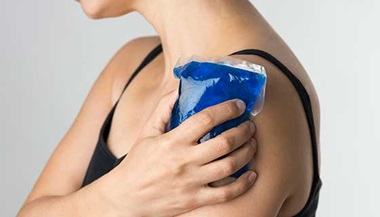Engaging in sports and physical activities comes with its inherent risks, including the possibility of sustaining injuries. While some minor injuries can be managed at home with rest and self-care, others may require prompt medical attention to prevent further complications and facilitate a speedy recovery. In this article, we'll discuss the signs and symptoms that indicate it's time to seek medical treatment for a sports injury.
1.Severe Pain:
- If you experience intense or persistent pain that does not subside with rest, ice, or over-the-counter pain relievers, it could indicate a more serious injury such as a fracture, torn ligament, or muscle tear. Seeking medical attention can help determine the extent of the injury and the appropriate treatment plan.
2. Inability to Bear Weight or Move the Injured Area:
- If you are unable to put weight on the injured limb or move it without significant pain, it may be a sign of a severe injury such as a fracture or ligament tear. Continuing to use the injured area could worsen the damage and delay healing, so it's essential to seek medical evaluation promptly.
3.Swelling and Bruising:
- Swelling and bruising are common responses to injury as the body's natural healing process kicks in. However, excessive swelling or bruising that persists or worsens over time may indicate a more serious injury, such as a fracture or internal bleeding. A medical professional can assess the severity of the injury and recommend appropriate treatment.
4.Joint Instability or Popping Sensation:
- Instability in a joint or a popping sensation during movement can be signs of ligament or tendon injuries, such as a torn ACL or rotator cuff tear. These injuries often require medical intervention, including diagnostic imaging (e.g., MRI) to accurately assess the damage and determine the best course of treatment.
5. Numbness or Tingling:
- Numbness, tingling, or loss of sensation in the injured area may indicate nerve damage or compression. These symptoms should not be ignored, as they could lead to long-term complications if left untreated. Seeking medical attention promptly can help prevent further nerve damage and facilitate appropriate treatment.
6.Concussion Symptoms:
- If you experience symptoms of a concussion following a head injury, such as headache, dizziness, confusion, nausea, or difficulty concentrating, it's crucial to seek medical evaluation immediately. Concussions require proper management to prevent complications and ensure a safe return to activity.
7.Persistent Symptoms:
- If you've been managing a sports injury at home but notice that symptoms persist or worsen over time, it may be a sign that the injury is more severe than initially thought. Seeking medical evaluation can help identify any underlying issues and prevent long-term complications.
In conclusion, knowing when to seek medical treatment for a sports injury is crucial for ensuring optimal recovery and preventing further damage. If you experience any of the signs or symptoms mentioned above, don't hesitate to consult a medical professional for proper evaluation and treatment. Remember, early intervention can make a significant difference in the outcome of your injury and help you get back to doing what you love sooner.






Comments